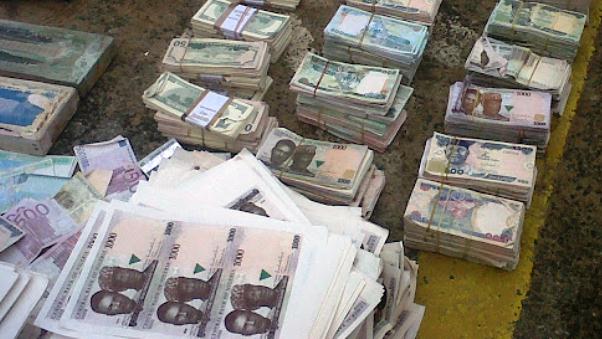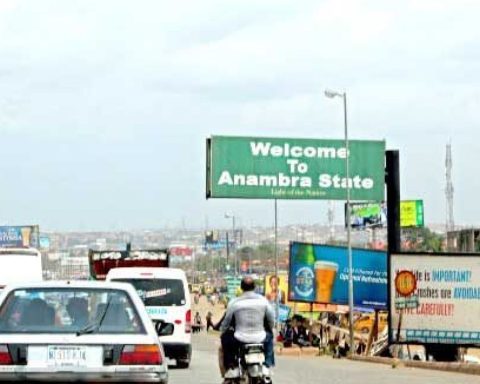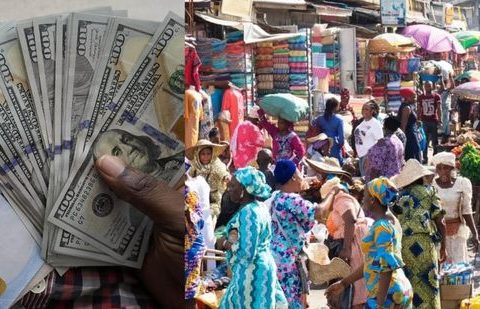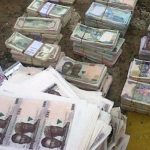The Nigeria Bureau of Statistics (NBS) has revealed that the price of cooking gas rose significantly in 2024. According to the NBS Liquefied Petroleum Gas (Cooking Gas) Price Watch for December 2024, the cost of refilling a 5kg cylinder increased from N4,962.87 in December 2023 to N7,177.27 in December 2024, representing a year-on-year rise of 44.62%.
On a month-on-month basis, the report shows a smaller increase. “The price of refilling a 5kg cylinder went up from N7,088.16 in November 2024 to N7,177.27 in December 2024,” an NBS official explained, adding that this is a 1.26% monthly increase.
Join our WhatsApp ChannelPrice Analysis Based on States
The report noted significant variations in cooking gas prices across states. Taraba recorded the highest average price for refilling a 5kg cylinder, at N8,074.41, followed by Lagos at N7,910.71 and Benue at N7,900.00.
In contrast, Delta had the lowest price at N6,455.00, with Ondo and Zamfara following at N6,683.33 and N6,778.57, respectively.
“The cost differences reflect logistical challenges and distribution costs in different parts of the country,” an economist said.
Similarly, the price of refilling a 12.5kg cylinder rose by 50.08%, climbing from N11,510.16 in December 2023 to N17,274.16 in December 2024. However, on a month-to-month basis, the price slightly decreased by 0.05%, from N17,283.58 in November 2024 to N17,274.16 in December 2024.
Taraba again recorded the highest average retail price for the 12.5kg cylinder, at N20,290.75, followed by Yobe at N19,000.00 and Rivers at N18,710.94. Kebbi had the lowest average price, at N15,733.33, followed by Nasarawa and Kwara, with N15,875.00 and N16,109.38, respectively.
READ ALSO:Cooking Gas Crisis: Will Nigeria’s LPG Export Ban Be The Solution?
Geopolitical Zone Breakdown
The price of cooking gas also varied by geopolitical zones. According to the NBS report:
- North-East: N18,173.90 (highest)
- South-West: N17,544.26
- North-Central: N16,482.47 (lowest)
- North-West: N16,959.47
- South-East: N17,100.94
- South-South: N17,539.44
A Lagos-based energy analyst commented, “The differences in prices reflect transportation costs and availability across the zones. Areas further from gas depots tend to experience higher prices.”
Federal Government Measures
In November 2024, the Federal Government banned the export of cooking gas to stabilize domestic prices and increase availability. However, experts remain divided on the effectiveness of this measure.
A trader in Lagos, Yusuf Olalekan, expressed frustration: “Even with the ban, the price of cooking gas is still too high. I used to refill my 12.5kg cylinder for less than ₦10,000 last year, but now it costs me ₦17,000 or more. It’s affecting my business.”
Another consumer, Aisha Mohammed from Taraba, said, “In Taraba, we pay over ₦20,000 for a 12.5kg cylinder. This is almost unaffordable for many families.”
LPG Usage and Challenges
The NBS survey on residential energy use in 2024 revealed that only 19.4% of Nigerian households use Liquefied Petroleum Gas (LPG) for cooking or other purposes. This highlights a significant gap in the adoption of clean energy in Nigeria.
An Abuja resident, Emeka Ugochukwu, shared his concerns: “We need to make cooking gas affordable so more people can switch to it. Using firewood or kerosene is bad for health and the environment.”
What Lies Ahead?
As Nigerians grapple with the rising price of cooking gas, questions remain about the impact of government policies and global economic factors. A survey conducted in Lagos in December 2024 revealed that a 5kg cylinder now costs around N7,000 on average.
Energy expert Grace Eze noted, “If the Federal Government and stakeholders don’t intervene effectively, the gap in clean energy usage will widen further.”
The rising cost of cooking gas continues to challenge households, traders, and policymakers. Whether recent measures can ease the burden remains to be seen.
Emmanuel Ochayi is a journalist. He is a graduate of the University of Lagos, School of first choice and the nations pride. Emmanuel is keen on exploring writing angles in different areas, including Business, climate change, politics, Education, and others.


















